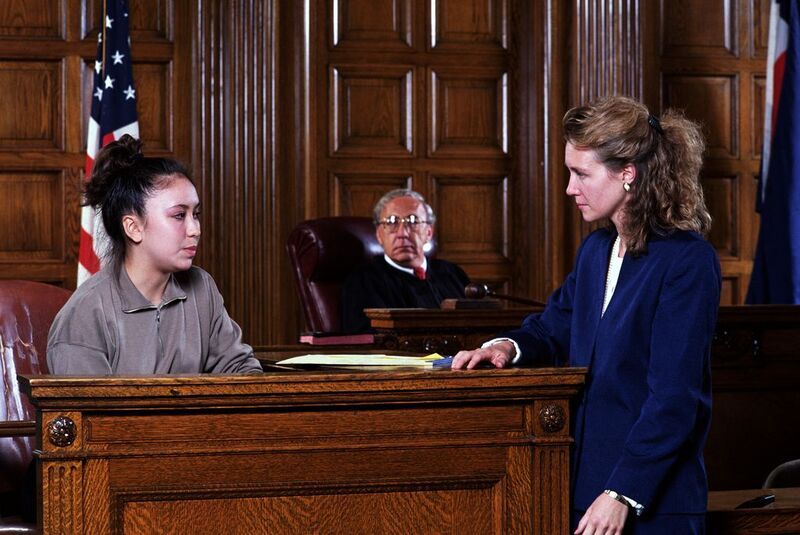 If you have been formally accused of a crime, and are now the defendant in a criminal prosecution, your fate will be determined at trial unless you choose to enter into a guilty plea agreement in lieu of taking your chances at trial. At that trial, the State of Nebraska will be charged with proving your guilt beyond a reasonable doubt using all the evidence and testimony they can gather together prior to that trial. Often, that includes testimony by an alleged eye witness to the crime. How reliable is that testimony though? To find out, an Omaha criminal defense lawyer provides an overview of the reliability of eye witness testimony.
If you have been formally accused of a crime, and are now the defendant in a criminal prosecution, your fate will be determined at trial unless you choose to enter into a guilty plea agreement in lieu of taking your chances at trial. At that trial, the State of Nebraska will be charged with proving your guilt beyond a reasonable doubt using all the evidence and testimony they can gather together prior to that trial. Often, that includes testimony by an alleged eye witness to the crime. How reliable is that testimony though? To find out, an Omaha criminal defense lawyer provides an overview of the reliability of eye witness testimony.
Criminal Prosecution Basics
Before going into a discussion about the reliability of eye witness testimony, it may help to put the importance of that testimony into perspective. As you may know, in a criminal prosecution the State, by the prosecuting attorney, has the burden of proving a defendant guilty beyond a reasonable doubt to a judge or jury. In the United States, a defendant is presumed innocent until proven guilty. The “beyond a reasonable doubt” standard required in a criminal prosecution is the highest burden in the U.S. justice system. Many legal experts and scholars explain the “beyond a reasonable doubt” standard in numerical terms as 99 percent (or more) certain that the defendant is guilty. Consequently, every piece of evidence presented during the trial is important.
Witness Testimony Basics
In a criminal trial, there are different types of evidence that may be used. There are four general categories of evidence, including: real, or physical; demonstrative; documentary; and testimonial evidence. Physical evidence might be the alleged weapon used in the crime. Demonstrative evidence might be a model or diagram used to explain what might have occurred during the crime. Documentary evidence includes things such as printed records or letters. Finally, testimonial evidence refers to what a witness testifies to at the trial.
When it comes to witness testimony in general, jurors are instructed to decide for themselves how believable a witness is. Keep in mind that a witness could be an expert testifying about something scientific, a law enforcement officer testifying about how a house was searched, or an eye witness testifying because he/she allegedly saw the crime occur. The other side will do their best to discredit a witness; however, in the end each juror much decide whether the witness appeared credible and reliable.
How Reliable Is Eye Witness Testimony in General?
Although jurors must decide on a case by case basis whether a witness is credible and reliable, there have been numerous studies done on the reliability of eye witnesses to a crime. Consequently, eye witness testimony is often viewed a bit differently than other types of testimonial evidence. The bottom line is that eye witness testimony can be flawed, and therefore unreliable, for numerous reasons, such as:
• Extreme witness stress at the crime scene or during the identification process.
• Presence of weapons at the crime causing stress
• Use of a disguise by the perpetrator such as a mask or wig.
• A racial disparity between the witness and the suspect, known as “cross-racial identification,” can make it more difficult to remember distinguishing, or even accurate, characteristics
• Brief viewing times at the lineup or during other identification procedures.
• Subtle suggestions from the police that prompt a witness to lean toward a specific suspect during photo arrays or line-ups
• A lack of distinctive characteristics of the suspect such as tattoos or extreme height.
• Distance, darkness, and weather conditions that diminish the ability to see and/or recall
• Witness characteristics that prevent accurate sight or recall, such as the need for glasses, consumption of alcohol prior to witnessing the crime, or age related memory loss.
Any one of these factors could cause an eye witness account to be unreliable. Even victims can make errors in identification because of these factors. Consider all the people released from prison in recent years because advances in science and technology have exonerated them after DNA tests have proven their innocence. When it comes to eye witness testimony, it should be evaluated in light of all the potential factors that could cause it to be less than 200 percent reliable.
Contact an Omaha Criminal Defense Lawyer at Petersen Law Office
If you have been charged with a criminal offense in the State of Nebraska, it is in your best interest to consult with an experienced Nebraska criminal defense lawyer right away to discuss possible defenses. In Nebraska contact Petersen Criminal Defense Law 24 hours a day at 402-509-8070 to discuss your case.


